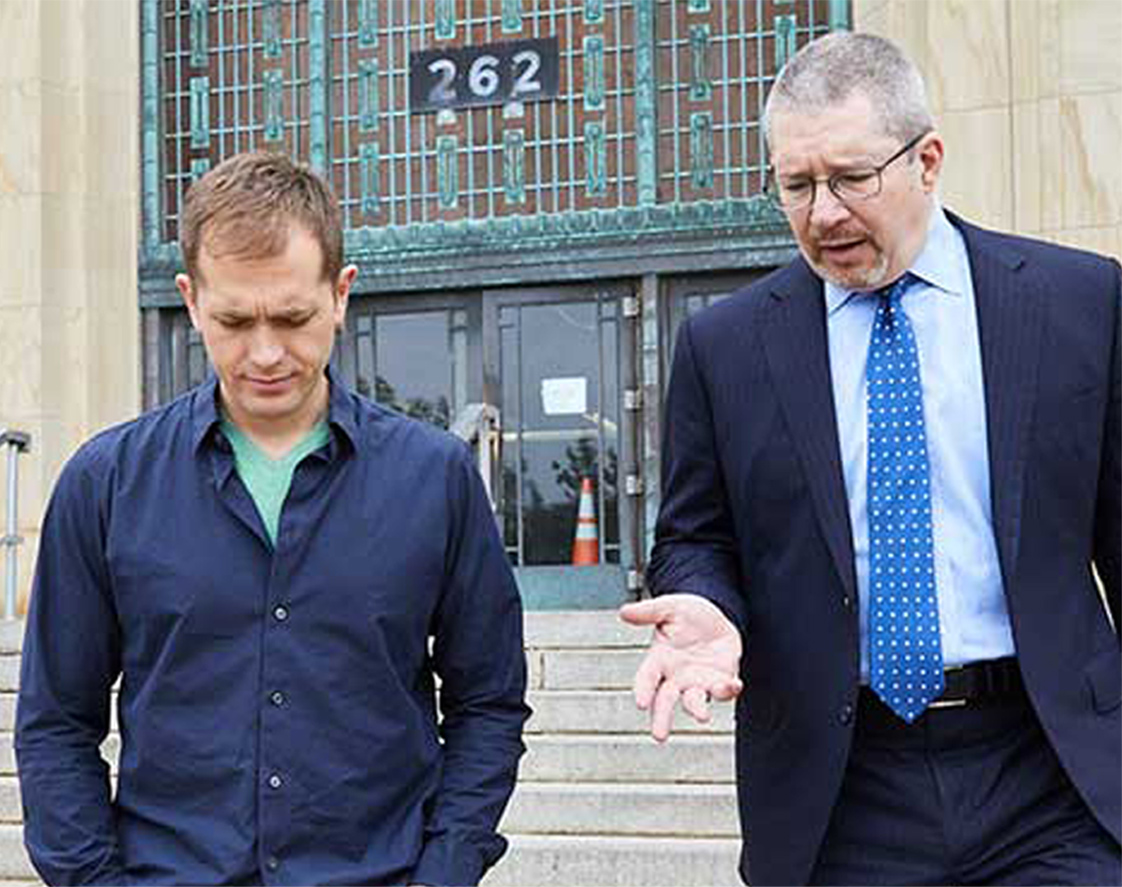
Criminal Defense & Legal Support When You Are In Trouble
Being arrested is an overwhelming experience. You are probably confused and may not know what to do. I understand how that feels first hand, thanks to a serious false accusation that occurred when I was young. You don’t have to face these charges alone. Having an experienced (Nassau county) defense attorney when fighting your criminal charges is imperative to your outcome. Over the past 25 years, I’ve experienced the ins and outs of both sides of the courtroom (in Nassau County) , working as both a prosecutor and now as a defense attorney, where I’ve practiced for the majority of my career. That means you’ll be getting the best possible representation, no matter what’s happened to you. If you or a loved one has been arrested in Nassau County, Call me to speak with a trusted, experienced Nassau County criminal attorney – today.
Consult a former Long Island assistant DA
I started my career as a Nassau county assistant district attorney. In that position I had the opportunity to prosecute people arrested for misdemeanors and felonies in Nassau County. The experience I received included responding to and arguing motions, conducting evidentiary hearing and conducting bench and jury trials. The experience I received prosecuting criminal offenses has given me a unique perspective on how law enforcement and prosecutors prepare their cases and I use that perspective to help my clients when they are facing criminal charges. So trust in the expertise of a former Assistant DA to navigate your legal challenges with confidence and diligence.

Scott Limmer Provides Aggressive and Experienced Representation
When I represent you I promise you the following I Will Listen to You. – I will listen as you explain what happened, as well as any background information that is relevant to the incident. I will learn about you and the facts of the case so I can use it to your advantage in seeking the best outcome.
I Will Explain the Legal Process and Possible Outcomes. – No legal jargon or confusing legalese – I will clearly explain the path your case will most likely take so you have an understanding of the situation, from the first conversation to the last. I will keep you informed and let you know how any new information we receive will affect your case.
I Will Advocate on Your Behalf. – My goal is to help you move on with your life as quickly as possible. I will present evidence to the prosecutor, judge, and if needed, jury, to explain why the case may not be proven against you while simultaneously providing information about your life and character.
Schedule a free consultation with experienced Nassau County defense lawyer Scott J. Limmer without delay.
Take the first step in securing strong legal defense by scheduling a free consultation with Scott J. Limmer, an experienced Nassau County defense lawyer. With a deep understanding of criminal law, Scott J. Limmer is committed to providing personalized and effective representation. During the consultation, you’ll have the opportunity to discuss your case, ask questions, and gain insights into potential strategies. Benefit from Scott’s extensive legal knowledge and dedication to advocating for your rights. Schedule your free consultation today and embark on a path towards a robust defense for your legal matters.

Meeting with a Criminal Lawyer in Nassau County
Meeting with a criminal lawyer in Nassau County is a crucial step when facing legal challenges. These professionals possess a deep understanding of local laws and regulations, ensuring they can provide tailored advice and strategic guidance. Whether you’re dealing with criminal charges, investigations, or seeking legal representation, a skilled Nassau County criminal lawyer can assess your case, explain potential outcomes, and craft a robust defense strategy. These consultations offer a vital opportunity to discuss your situation confidentially, gain insights into the legal process, and make informed decisions about your next steps. Trustworthy legal counsel is essential for safeguarding your rights and navigating the complexities of the criminal justice system in Nassau County.
What the Lawyer Needs to Know
To effectively represent clients, the lawyer must be well-versed in the intricacies of the county. Understanding local laws, judicial nuances, and the legal landscape is crucial. Familiarity with county-specific regulations and court procedures ensures strategic decision-making, enhances case preparation, and facilitates smoother proceedings. Whether navigating through civil, criminal, or family law matters, a comprehensive grasp of the county’s legal dynamics is essential for the lawyer to provide informed counsel and achieve favorable outcomes for their clients.
Being organized and proactive will help your lawyer better understand your case and provide informed advice.
Questions to Ask the Lawyer
Remember that this meeting is for both you and the lawyer. Don’t be afraid to ask questions to make sure this Nassau County criminal lawyer is the right one for you. Make sure that you are comfortable with this person and feel that you can trust them to provide you the best representation.
Here are a few questions you can ask:
- How many criminal cases have you handled in Nassau County or elsewhere?
- How many Nassau County cases similar to mine have you had a successful outcome?
- What legal options, if any, do I have?
- What are your fees, and do you offer a payment plan?
- What problems do you foresee with my case?
- How will my case proceed through the legal system in Nassau County, and how long will it likely take?
In essence, asking questions empowers you to actively participate in your legal process, fostering a collaborative and transparent attorney-client relationship.
Nassau County Courts
Here are some details to help you get around, should you or someone you care about become involved with the Nassau County criminal courts system.
Nassau County Jurisdiction
The majority of Nassau County criminal cases are heard at two different courthouses. Misdemeanors are heard at the Nassau County District Court located at 99 Main Street and felonies are heard at the Nassau County Court House located at 262 and 272 and Country Road, Mineola.
There are two city courts located within Nassau County. The Glen Cove and Long Beach courts have jurisdiction over misdemeanors and traffic infractions that take place within their jurisdiction.
There are also numerous village courts throughout the county which have jurisdiction over traffic infractions.
The Nassau County District Attorney is Madeline Singas, who became DA in 2015 when Kathleen Rice was elected to the US House of Representatives.
This process aims to ensure a fair and efficient legal proceeding while considering the rights of the accused. It’s essential for defendants to understand their rights, have legal representation, and be aware of the charges they face during the arraignment in Nassau County.
Bail and Custody
Upon setting bail during arraignment in Nassau County, it can be promptly paid in cash at the courthouse or through cash or bond at the Nassau County Correctional Facility on Carmen Avenue in East Meadow. Throughout the period of bail or a sentence of one year or less, individuals will be housed at the correctional facility situated at 100 Carmen Avenue in East Meadow.
Special Courts in Nassau County
Nassau County features a diverse range of specialized courts dedicated to addressing unique legal challenges and fostering tailored interventions. Among them are:
Nassau County Domestic Violence Part:
Focused on cases involving domestic violence, this court ensures a specialized approach to protect victims and rehabilitate offenders.
Nassau County Mental Health Court:
Geared towards individuals with mental health issues, this court emphasizes treatment and rehabilitation over punitive measures.
Nassau County Integrated Domestic Violence Court:
An integrated approach to domestic violence cases, combining criminal and family court proceedings for comprehensive resolution.
Nassau County Drug Court:
Providing an alternative to incarceration, this court emphasizes rehabilitation and support for individuals facing drug-related charges.
Nassau County Veterans Court:
Tailored for veterans, this court addresses the unique challenges they may face, offering support and rehabilitation services.
Nassau County Human Trafficking Court:
Focused on cases related to human trafficking, this court aims to provide specialized assistance and justice for victims and survivors.
These specialized courts showcase Nassau County’s commitment to addressing specific legal issues with targeted, compassionate, and effective approaches.
Directions and Parking for Nassau County Courts
When coming to the County Court in Nassau, please note that it is located on the south side of Old Country Road. The court has a large parking lot to the south of the courthouse, which usually fills up quickly in the morning. Additional parking is available on the south side of the Supreme Court building.
When coming to the District Court,please note that it is located on the west side of Main Street in Hempstead. There are numerous parking options. There is a metered town lot diagonally across from the court, a private paid lot across from the court, and some metered street parking in the areas around the court.
Nassau County Courthouse Map
Street Map to the Nassau County Courts Complex at 262 Old Country Road in Mineola.
Nassau County District Courthouse Map
Street Map to the Nassau County District Courthouse at 99 Main Street in Hempstead
Courthouse Details:
Court begins at 9:30 each morning.
Security Screening:
All visitors must undergo security screening upon entering the Nassau County courthouse. This typically includes passing through metal detectors and having bags and belongings scanned for security purposes.
Prohibited Items:
Certain items, such as weapons, sharp objects, and illegal substances, are strictly prohibited within the courthouse premises. Visitors are required to leave such items outside or dispose of them in designated areas.
Cell Phone Usage:
Respect guidelines regarding cell phone usage. Typically, visitors are required to silence their phones in courtrooms and public areas, and the use of cameras or recording devices may be restricted.
Proper Attire:
Maintaining a standard of dress suitable for a formal and respectful environment is expected. Visitors should avoid wearing clothing with offensive or inappropriate language or images.
Courtroom Etiquette:
When attending court proceedings, observers are expected to adhere to proper courtroom etiquette. This includes standing when the judge enters or exits the courtroom, addressing the court with respect, and refraining from disruptive behavior.
Schedule a free consultation with experienced criminal lawyer in Nassau County Scott J. Limmer without delay.
Take the first step in securing strong legal defense by scheduling a free consultation with Scott J. Limmer, an experienced Nassau County defense lawyer. With a deep understanding of criminal law, Scott J. Limmer is committed to providing personalized and effective representation. During the consultation, you’ll have the opportunity to discuss your case, ask questions, and gain insights into potential strategies. Benefit from Scott’s extensive legal knowledge and dedication to advocating for your rights. Schedule your free consultation today and embark on a path towards a robust defense for your legal matters.